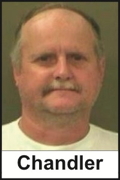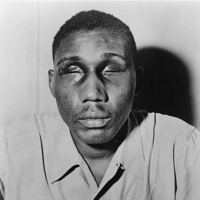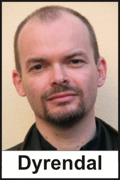Rascals case in brief
In the beginning, in 1989, more than 90 children at the Little Rascals Day Care Center in Edenton, North Carolina, accused a total of 20 adults with 429 instances of sexual abuse over a three-year period. It may have all begun with one parent’s complaint about punishment given her child.
Among the alleged perpetrators: the sheriff and mayor. But prosecutors would charge only Robin Byrum, Darlene Harris, Elizabeth “Betsy” Kelly, Robert “Bob” Kelly, Willard Scott Privott, Shelley Stone and Dawn Wilson – the Edenton 7.
Along with sodomy and beatings, allegations included a baby killed with a handgun, a child being hung upside down from a tree and being set on fire and countless other fantastic incidents involving spaceships, hot air balloons, pirate ships and trained sharks.
By the time prosecutors dropped the last charges in 1997, Little Rascals had become North Carolina’s longest and most costly criminal trial. Prosecutors kept defendants jailed in hopes at least one would turn against their supposed co-conspirators. Remarkably, none did. Another shameful record: Five defendants had to wait longer to face their accusers in court than anyone else in North Carolina history.
Between 1991 and 1997, Ofra Bikel produced three extraordinary episodes on the Little Rascals case for the PBS series “Frontline.” Although “Innocence Lost” did not deter prosecutors, it exposed their tactics and fostered nationwide skepticism and dismay.
With each passing year, the absurdity of the Little Rascals charges has become more obvious. But no admission of error has ever come from prosecutors, police, interviewers or parents. This site is devoted to the issues raised by this case.
On Facebook
Click for earlier Facebook posts archived on this site
Click to go to
Today’s random selection from the Little Rascals Day Care archives….
Click for earlier Facebook posts archived on this site
Click to go to
Today’s random selection from the Little Rascals Day Care archives….
A last chance at freedom – or the end of the road
 Feb. 15, 2012
Feb. 15, 2012
I asked Mark Montgomery for an update on Junior Chandler’s latest appeal of his two life sentences for child sexual abuse:
“There are two prongs to the appeal. First, I am asking the N.C. Supreme Court to simply do the right thing by Junior. The Court said in 2010 that expert testimony like that in Junior’s case is (and was) inadmissible. That being the case, it is fundamentally unfair for Junior to be facing the rest of his life in prison, when many defendants have been freed because this sort of testimony was used against them at trial.
“Second, Junior’s lawyer objected to the testimony but did not raise the issue on appeal. I argued in a motion in Superior Court that the lawyer was ineffective for abandoning the issue. The Superior Court judge denied the motion without a hearing. If the Supreme Court will not itself set aside Junior’s convictions, it should at least require a hearing on trial counsel’s conduct.”
This is how the process works: “Petitions such as Junior’s go to one of the six associate justices. He or she decides what should be done and then presents the case to the court as a whole in a monthly (sort of) closed door meeting. The justices then vote on whether to grant the petition. If the Court grants the petition, it usually requires full briefs from both parties, but may decide the case of the basis of the petition and the State’s response alone.
“If it denies the petition, that’s the end of the road.”
The court could respond as early as April 13, according to this chart of petitions allowed and denied.
Grandmother blames ‘Kelly magic’ for outlandish tales
Jan. 18, 2013
““I am the grandmother of a Little Rascals Day Care victim, and I am greatly disturbed by many responses to ‘Innocence Lost: The Verdict.’
“Wake up out there! Do you think everything you see on television is true? The bizarre stories told by some of the children are unbelievable to the unknowing adult – being cooked in microwave ovens, going on spaceships – but by some Kelly magic, the children were brainwashed to believe them. I repeat! Wake up America.”
– From a letter to the editor of the Chowan Herald by Frances P. Wilkins of Edenton (Aug. 26, 1993)
Edenton anything but eager to make amends for Little Rascals

Post & Courier
Woodard
Feb. 11, 2019
“Such stories aren’t proudly passed down from one generation to the next. Unlike some small Southern towns,
which often ignore the troublesome elements of their past, Batesburg-Leesville (the two towns merged in 1993) has embraced [Isaac] Woodard’s tragedy and tried to make amends….”
– From “A cop gouged out a black vet’s eyes. 73 years later, the SC town confronts it”
by Brian Hicks in the Charleston Post & Courier (Feb. 7)
If ever there was a small Southern town committed to ignoring the “troublesome elements” of its past, it is Edenton, North Carolina. Not a hint of the Little Rascals Day Care case – surely the most significant news event of 20th century Edenton – mars the civic memory.
![]()
‘Subculture’ of therapists blamed ritual abuse
 Jan. 16, 2013
Jan. 16, 2013
“Therapists diagnosing Satanic Ritual Abuse as the cause of their patients’ troubles… often belonged to a subculture within the therapeutic community, where focus on dissociation and multiple personalities were more important than among other clinicians.
“This small minority were involved in the vast majority of ritual abuse allegations with a therapy background. Nevertheless, many elements of the ideas, and some of the practices that seem to have been important in creating SRA-narratives were common among therapists of all kinds: belief in the concept of repression, a view of memory as analogous to a video-tape or computer and (confidence) that hypnosis could be an important tool in unearthing forgotten abuse. This view of memory and memory recovery has been largely dismissed among the community of cognitive psychologists.”
– From “Psychology and the Satanic Ritual Abuse Controversy. A Brief Research Review” by Asbjørn Dyrendal in Skepsis (March 2, 2007)











0 CommentsComment on Facebook